Find out more about The Open University’s politics courses.
The world is a scary place at the moment - climate crises, violent authoritarians and runaway inequality all present complex, interwoven and existential challenges. Being overwhelmed by our problems is understandable, as they can feel too big for any one of us to make a difference in the world. By turning to the example of Wales, however, you can glimpse some valuable lessons. After all, what jumps out of the screen of the Huw Edwards-presented BBC/OU co-production Wales: Who Do We Think We Are is a surge of agency, energy and ideas from below, from ordinary people who have decided that they can enact change.
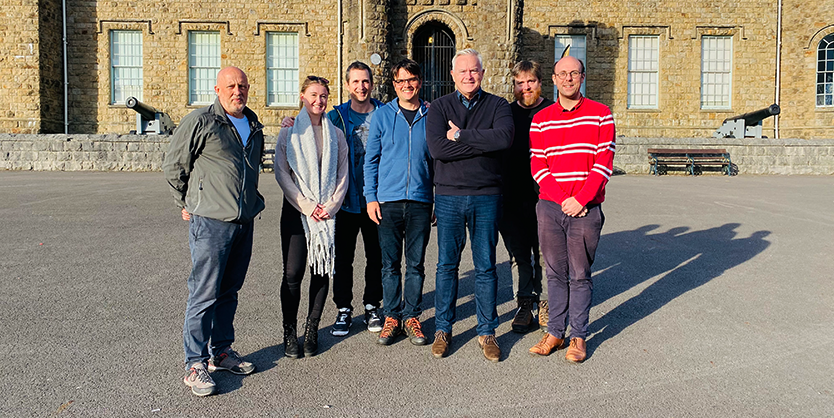 Owain Smolović Jones (third from left) with production team and presenter Huw Edwards during the filming of Wales: Who Do We Think We Are at Cyfarthfa Castle. Discover more about the series on OU Connect.
Owain Smolović Jones (third from left) with production team and presenter Huw Edwards during the filming of Wales: Who Do We Think We Are at Cyfarthfa Castle. Discover more about the series on OU Connect.
Leadership is a commonly misunderstood but distinctive practice. Its core qualities are that it influences perceptions and imaginations, disrupting status quo ways of doing, thinking and feeling, generating alternatives in the process. Key to this view of leadership is that it is a practice enacted by and between many people rather than being the property of any individual – a verb rather than a noun (Grint and Smolović Jones, 2022). Leadership is different from managing, which is about making the world more knowable and routine. Or from command, which is about following the orders of people formally in charge. Most healthy organisations and societies have a balance of all three of these modes.
Yet in our contemporary times of profound unease, there is a strong argument to be made that we need far more leadership and far less management and command – bold practice to shake us out of current destructive patterns and trajectories. One implication of this view is that when looking for examples of leadership, we should pay less attention to the people in our world who already have outsized power. After all, in general these are the same people who have landed us in our current predicament.
Instead, we need to make sense of leadership from below that has managed to generate change. Enter Wales, which is making a difference across the key areas of climate change, housing, equalities and basic care for others in society.
What differentiates the leadership of Wales are two related qualities.
The first is active citizenship: the idea that ordinary people can be active political citizens; they can try to make change (or indeed prevent it). They can be ‘changemakers’. To do so, they need to be motivated to participate as well as kept informed about politics, democracy and the workings of society. There is also an element of personal responsibility, i.e. they need to make the effort to engage.
Active citizenship not a static term: it can be understood on a spectrum (Wood et al, 2018). So, it can be understood in a minimal sense (activities which relate to ‘personal responsibility’, such as obeying the law and paying taxes), all the way to a maximal sense, focusing on combatting injustice in society, defined by Westheimer and Kahne (2004) as ‘justice orientated’ citizenship. So, there are different ‘levels’ of active citizenship and, linked to this, questions about just how active an individual should be. Whatever approach a person takes, active citizenship is important for democracy, as is developing an understanding of what active citizenship means and involves; this is particularly the case in countries where democracy is at risk, but applies everywhere, including in Wales.
One excellent example of an active Welsh citizen is Angel Ezeadum, former Member of the Welsh Youth Parliament. Angel was the Member of the UK Youth Parliament for Cardiff and was elected as the first Member of the Welsh Youth Parliament representing Race Council Cymru. She used her platform to make impactful contributions to the Welsh Youth Parliament’s proceedings and to call for Black and People of Colour’s histories to be made a mandatory part of Wales’s new school curriculum. Alongside campaigners who led a petition to the Education Minister, which received almost 35,000 signatures and was debated in the Senedd, she helped persuade the Welsh government to more explicitly require that diverse communities, in particular the stories of Black, Asian and Minority Ethnic people, are a mandatory part of the curriculum.
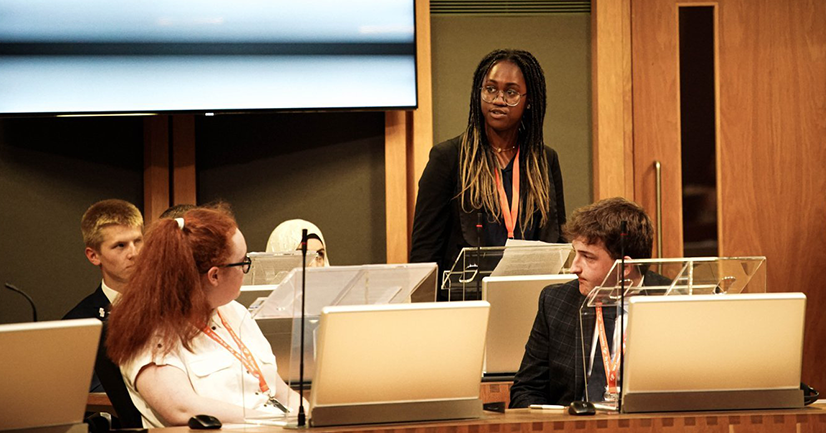 Angel Ezeadum speaking in the Welsh Youth Parliament.
Angel Ezeadum speaking in the Welsh Youth Parliament.
In our programme, we can see various examples of active political citizens, people seeking to make change. There’s Bria de la Mare, campaigning on the ground for an independent Wales through Welsh Labour – an example of what could be called ‘traditional’ political citizenship, i.e. engaging with electoral/party politics. Then there’s the Gurnos Men’s project and the Hope Pantry, both working in the community to make change for ordinary people (improving men’s mental health and employment outcomes, and making sure people have enough to eat). These are ‘broad’ examples of political citizenship, highlighting that there are things we do which can be considered political, even if we don’t see them as obviously political. In this sense we ‘do politics’, and are political citizens, in a multitude of ways every day, sometimes knowingly, sometimes unknowingly.
The second quality that differentiates Wales is the organic nature of its leadership. Organic leadership (Grint and Smolović Jones, 2022), at its most obvious level, states that to be effective, leadership from below needs to emerge naturally from within communities. It can’t be forced or imposed from outside, but has to grow outwards from a group’s authentic concerns.
In our programme, Dani Robertson, from the beautiful Rhosneigr, provides an excellent example of organic leadership. She drew attention to the problem of second and holiday homes gutting her community by filming the town at night, showing how few houses were occupied, with their lights on. The eerie lack of life in the video spoke to people’s felt sense that something was very wrong with the way in which housing in Wales was owned, distributed and regulated.
Tea time on a Feb eve. These houses should be alive with the activity of families after school. Instead they sit here lifeless. I tried to count all the soulless houses in my village, stopped when I hit 100. We don’t need to build more houses. We need to use these. pic.twitter.com/XQRtOSnDlr
— Dani Robertson (@DaniDarkSkies) February 8, 2022
Dani’s leadership is organic because she is a young person alienated from her home town by unaffordable housing. People relate to Dani because they see their own experiences in hers. Those from rural, largely Welsh-speaking Wales recognise the ways in which their communities are under attack from second home ownership and holiday lets. People in cities – particularly from racial minorities and the working-class – relate to how the commodification of housing displaces residents out of neighbourhoods they have long related to as home.
However, for leadership from below to take root organically, it needs people in decision-making positions who will listen and act. To be organic, such leadership from above needs to be porous with and responsive to the communities it represents, providing an infrastructure and culture of innovation and challenge within the boundaries of its guiding values. Ideally, leadership from above – from national governments or other organisations with a wide reach - connects individual issues and campaigns, imbuing them with a unifying moral and ideological frame. It is certainly the case that since devolution, a cross-party culture of partnership has developed between the Senedd, civil society and public bodies. None of this is to say that Wales is free of flaws, disagreements and fierce debate. These reservations and nuances, however, do not negate the fact that something fascinating is afoot in Wales.
When active leadership and citizenship from below meets an open and caring leadership from above, hope can be kindled and lives transformed. So the next time you are feeling like affecting change is out of your grasp, why not look to Wales for some practical ideas, role models and hope.
About the series
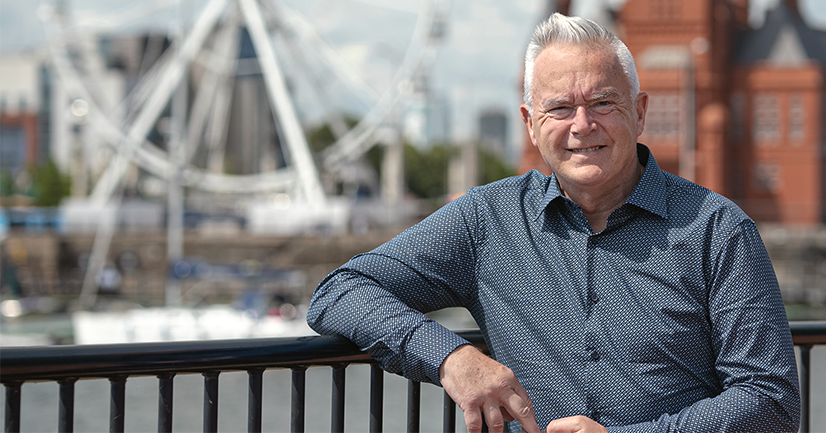 Image: © Wildflame
Image: © Wildflame Co-produced by BBC Cymru Wales and The Open University, Wales: Who Do We Think We Are? sees Huw Edwards travel around Wales to find out how people's identities have been shaped by the turbulent events of the past decade and by the challenges that the country currently faces.
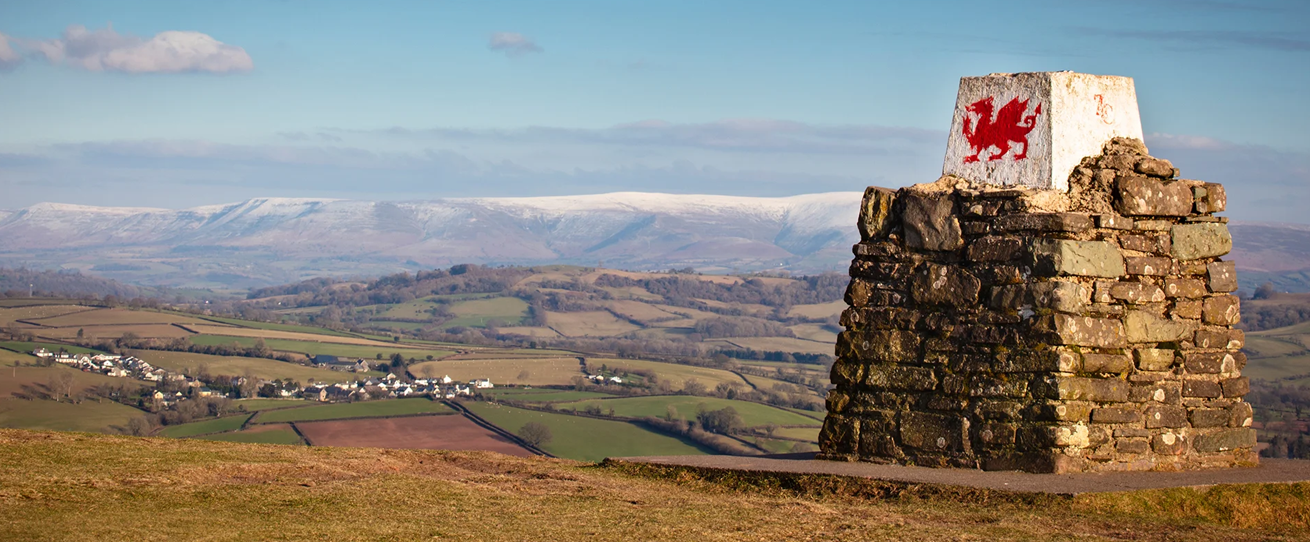
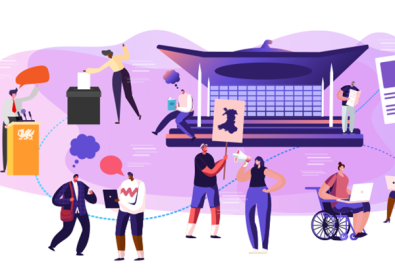
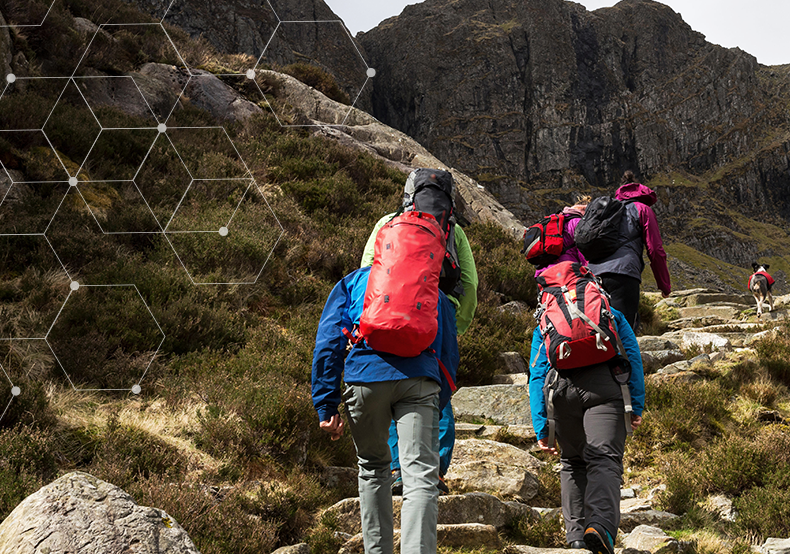
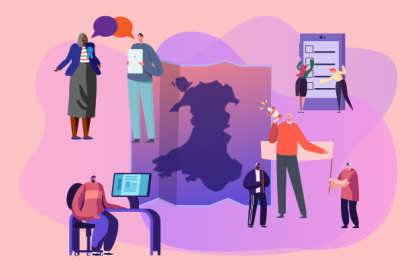
Rate and Review
Rate this article
Review this article
Log into OpenLearn to leave reviews and join in the conversation.
Article reviews